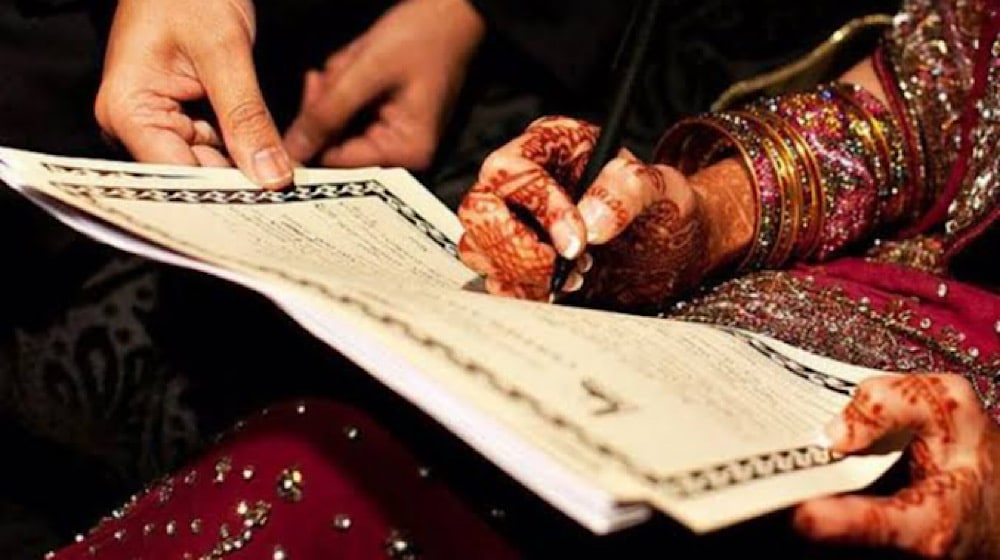
The Punjab government has formulated the Punjab Child Marriage Restraint Act 2024 to prevent marriages below the age of 18.
As per available documents, anyone involved in marrying a girl or boy under the age of 18 or facilitating such a marriage will face imprisonment ranging from two to three years along with a fine of up to Rs. 2 lac.
Furthermore, those involved in registering marriages of minor children will face imprisonment ranging from two to three years, along with a fine ranging from Rs. 1-2 lac.
Parents or guardians found facilitating, supporting, or permitting the marriage of minor children will be subject to imprisonment for a minimum of two years and a maximum of three years. In addition, they will face a fine ranging from Rs. 1-2 lac.
The draft specifies that complainants regarding child marriage can include parents or guardians, neighbors, community members, teachers, local body members, social workers, friends, mosque imams, and Nikah registrars.
The prosecution of individuals charged with child marriage shall be conducted by the courts established under Section 3 of the Family Court Act 1964, as empowered by Section 20.
During the marriage registration process under the aforementioned Act, the Nikah Khawan, Secretary Union Council, and Marriage Registrar will verify the computerized identity card, passport, educational certificate, or other documentation proving both of them are at least 18 years of age.
Copies of the computerized identity card, passport, educational certificates, and other documents verifying age must be attested and submitted along with the marriage certificate. Any violation or omission in this regard shall be considered an offense punishable under Section 6 of the Punjab Child Marriage Restraint Act, 2024.
If any dispute arises concerning the determination of the age of either party to the marriage, the court will ascertain the age based on birth certificates, educational certificates, or other pertinent documents following a hearing on the matter.
If these documents are unavailable, the age of both individuals will be assessed via a medical examination report. This legislation ensures prompt action upon reports of child marriage, with both law enforcement and judicial bodies swiftly addressing such cases, even before the marriage ceremony.
The Family Court, as empowered by the Code of Criminal Procedure 1898, will have the authority of a Judicial Magistrate of First Class. Any breach of the Act may result in arrest by the police under an irrevocable warrant.
Individuals found guilty by the Family Courts under this legislation have the right to appeal to the Sessions Courts.